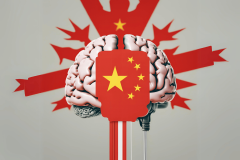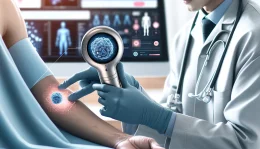What is the value of real-world health data? COVID-19 is telling us. Near real-time data-sharing on the COVID-19 cases as they come in — has been at the forefront of the fight against the pandemic. Particular countries without the privacy restrictions of the U.S. or Europe are sharing detailed patient information, not only with physicians, but the public to help each individual work with the best information. Here is how to share other health data in real=time like it’s a pandemic.
The information that we receive is not clinical trial data. The mainstream life sciences research and development process has ground to a halt in the face of social distancing. The data collected is real-world data and insights on daily clinical treatments.
The countries who have thus far proven to be the most effective in fighting COVID-19 are also the ones that have invested heavily in data-sharing capabilities. You could say that they’ve come closest to a Single Source of Truth for data to fight pandemics.
A city focused on data.
Singapore’s response to COVID-19 has been among the better in the world. A cosmopolitan culture, a top-notch public healthcare system and a strong economy made Singapore well-prepared for a crisis.
But don’t miss how the country’s problem-solving is made possible by using data as it comes in, and clear communications, to drive success in this extraordinary time. Singapore’s decisions, and their ability to carry them out have been due to investments made in their data operations. It’s also due to their ability to digest and use real-world data.
Before COVID-19.
If we rewind years before COVID-19, Singapore invested in their health system’s data operations. At the time, it may have been talked about in terms of efficiency and savings. Pacific Asia is seeing health costs rise as aging populations put pressure on public finances. The same populations are the most vulnerable to COVID-19. Substantial data operations were deployed to discover value and efficiencies.
The speed of these data operations grant more than the ability to save money. They also deliver the ability to forecast, and the interoperability of data between systems means these health systems and governments had credible intelligence early. Authorities used that intelligence to make decisive moves early.
Leaders were able to communicate with their population and stakeholders more effectively. The communication could be contributing to compliance with measures designed to slow the spread COVID-19. There is potentially less fear that the government or healthcare authorities are holding back information.
Putting pandemic health data to work.
Just as telehealth has suddenly broken through as a necessity, data sharing, and making that data available to frontline physicians should also breakthrough. Can we go back to siloed data streams, and an inability to see best practices at work in near real-time?
The battle cry of the COVID-19 pandemic has been to find ways to consolidate and share data fastest. Deciding winners and losers is suddenly secondary. Health Systems, physicians, policymakers, and patients are obsessively engaging in viewing daily statistical models, charts, and curves. This information would not be available without data flooding in.
Patients with other diseases may benefit in the future from our nation’s fresh approach (and proof) that sharing data for the benefit of patients does make a difference. What if we had this type of energy, solidarity, and results for cancer and Alzheimer’s?
Patients are finding their treatment in jeopardy and their safety in question. We owe it to them not to forget the lessons of the pandemic. We pray this is the last time we see a COVID-type pandemic. We must learn to be better prepared for the next time. A sophisticated data-rich platform will help the nation and the world. COVID has proven it can be done quickly.
So what about privacy?
But what about the invasion into personal details that a Singapore-style approach to health data brings? Americans for years have been rightly concerned about their privacy in the era of Big Data. Now, as the U.S. government struggles to ramp up testing for the coronavirus, intelligent people are clamoring for more scrutiny of public health.
As we strike a balance between these two poles, we as entrepreneurs in data-driven health must face the fact that the pandemic is a make-or-break moment for our industry.
We’re faced with a public health crisis where data is lacking, where fear of the unknown is rampant and threatening to worsen, and the government is playing catch-up. If we can’t demonstrate our utility in the face of this crisis, Americans will rightly dismiss us as tools only the rich need to stay wealthy.
A call to action.
Those of us who have made a living crunching numbers for insights that the beautiful-but-limited human mind cannot perceive have done well in the 21st Century economy. We’ve shown how collecting and mining data can move markets, creating billions in shareholder value. It’s not hyperbole to say that we have revolutionized American business. What’s more, we’re likely to do it again once the gains of artificial intelligence start to compound.
We need to translate our successes into the new space of the coronavirus economy. We must take the information from the lockdown period that is already leading many Americans to question a lot about how our society functions — to the post-pandemic time when government, companies, and families institute the most significant lessons learned.
Lessons.
Luckily, we can return to Asia for examples of how other countries have made the transition. South Korea and Taiwan have used Big Data to help combat the crisis, with successes that rival those in the U.S. so far.
Many will immediately ask whether the culture and political ideologies of these countries make them comparable to the U.S. My suggestion is that we look at how they are succeeding and failing and – according to our American standards – figure out how to repeat the former but not the latter.
When the virus first appeared in China, for example, authorities cracked down on the news about the sickness, probably exacerbating the crisis in the short term. That’s not the American way.
But China used mobile apps to enforce 14-day quarantines and infrared cameras in train stations to quickly identify travelers with fevers. It was found that Singapore’s data and information handling during the pandemic has been superior relative to elsewhere. South Korea has admirably rolled out testing but used GPS Data to identify (straitstimes.com) whom to test. Those countries have curbed the spread of coronavirus in relative terms.
Contrast that progress with the European Union, where cases in Italy have surpassed those in much-bigger China. The EU’s response has been called “ bureaucratic and often technophobic” relative to that of countries like Taiwan. That’s not us, either.
A way forward.
We can discuss whether Zoom needs to issue a further transparency report, as some advocates have urged as the teleconferencing service has transformed from a niche product to an essential business solution overnight. That’s a good question for Americans to talk about. But we first need to make sure the service works as well as possible.
Ultimately, I believe the U.S. will triumph over the coronavirus. I don’t think our capitalist societies will fare worse because they are open. That said, when people call on the wonders of Big Data in an emergency, I’m happy to learn from others.


















